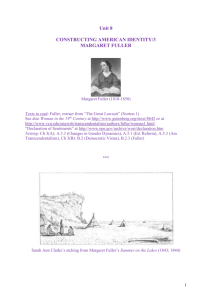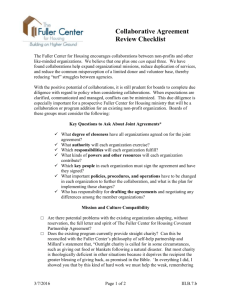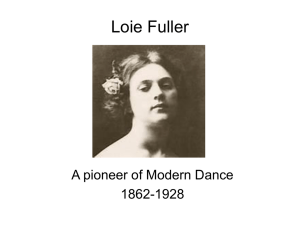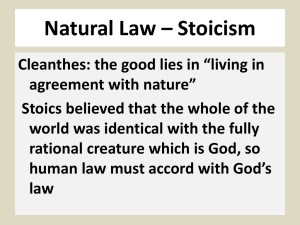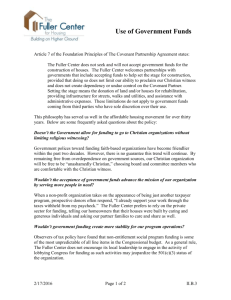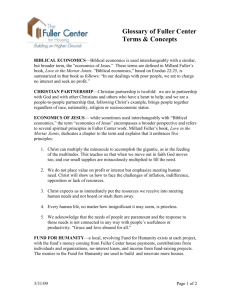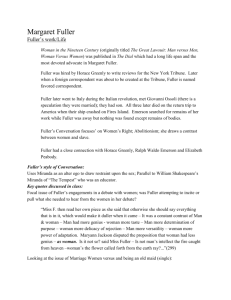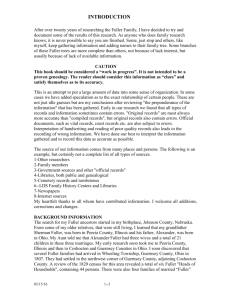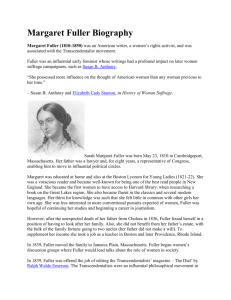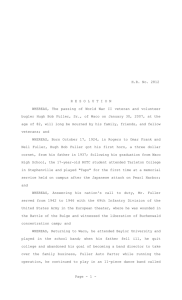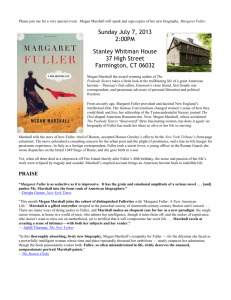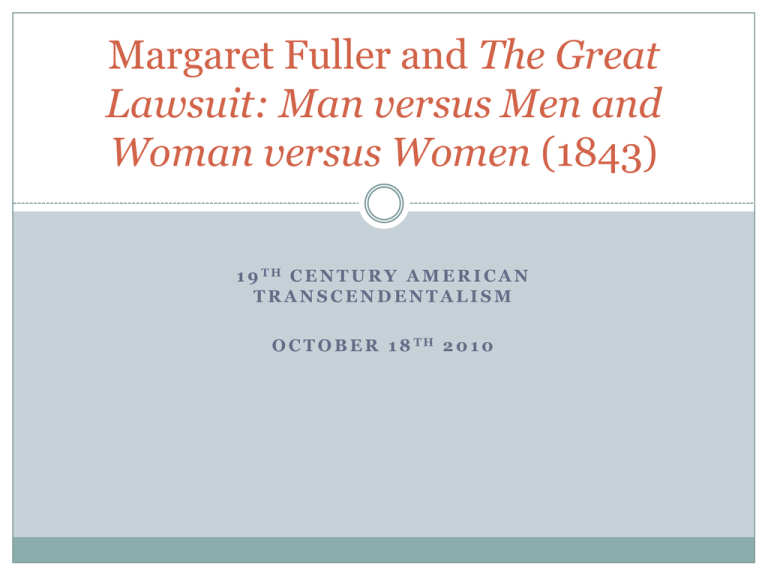
Margaret Fuller and The Great
Lawsuit: Man versus Men and
Woman versus Women (1843)
1 9 TH C E N T U R Y A M E R I C A N
TRANSCENDENTALISM
O C T O B E R 1 8 TH 2 0 1 0
The Great Lawsuit: Making the
“Case”
HOW DOES FULLER CHARACTERIZE THE
POSITIONS OF MEN AND WOMEN?
HOW DOES SHE TRY TO REFRAME THE
RELATIONSHIP BETWEEN THE SEXES?
HOW DOES FULLER ACT AS A CULTURAL
CRITIC IN THIS PIECE? WHAT IS THE “CASE”
SHE IS MAKING?
The Life of Margaret Fuller (1810-1850)
1839-1844: holds “conversations" in Boston, while
serving as the editor of The Dial
1846: becomes a foreign correspondent for the New
York Tribune (one of the first in America)
1847: meets and falls in love with Marquis Giovanni
Angelo d’Ossoli and gives birth to an illegitimate son
1850: Upon the family’s return home from Europe,
their ship is overtaken by a storm; they drown in sight
of Fire Island. Thoreau is sent by Emerson to recover
Fuller’s manuscripts but finds only unidentifiable
human remains on the beach.
Radical social change in the 1840s
Abolitionism
Fourierism
Transcendentalism
Women’s rights
“A great moral law”
“Here, as elsewhere, the gain of creation consists
always in the growth of individual minds, which live
and aspire, as flowers bloom and birds sing, in the
midst of morasses; and in the continual development
of that thought, the thought of human destiny, which
is given to eternity to fulfill, and which ages of failure
only seemingly impede…this country is as surely
destined to elucidate a great moral law, as Europe
was to promote the mental culture of man” (302-303
in Buell).
Fuller in conversation with her self-image
“Of Miranda, I had always
thought as an example, that
the restraints upon the sex
were insuperable only to
those who think them so, or
who noisily strive to break
them…the many men, who
knew her mind and her life,
showed to her confidence as
to a brother, gentleness as to
a sister. And not only refined,
but very coarse men approved
one in whom they saw
resolution and clearness of
design. Her mind was often
the leading one, always
effective” (309 in Buell).
“Miranda, The Tempest,” J.W.
Waterhouse, 1916 (oil on canvas)
Man and Woman’s “Prophetic” Relationship
“The sexes should not only correspond to and appreciate
one another, but prophesy to one another. In individual
instances this happens. Two persons love in one another
the future good which they aid one another to unfold…[in
the general life, man] often discourages with school-boy
brag; Girls cant do that, girls cant play ball. But let any
one defy their taunts, brake through, and be brave and
secure, they rend the air with shouts.
No! Man is not willingly ungenerous…he is not yet
himself an elevated being. He cries with sneering
skepticism; Give us a sign…” (310 in Buell)
Men’s relationship(s) to Women
“It is soon obscured by the mists of sensuality, the dust
of routine, and he thinks it was only some meteor, or
ignis fatuus that shone.”
Fuller and Emerson
Fuller linked “the woman question” directly to
Emersonian self-reliance: “What Woman needs is
not as a woman to act or rule but as a nature to grow,
as an intellect to discern, as a soul to live freely and
unimpeded, to unfold such powers as were given her
when we left our common home.”
Conversation starters: Denise’s questions
“If fewer talents were given her, yet, if allowed the free and
employment of these, so that she may render back to the giver his
own with usury*, she will not complain, nay, I dare say she will
bless and rejoice in her earthly birth-place, her earthly lot,”
Fuller writes (307). Does this have any connection with
Emerson’s argument “As soon as man is at one with God, he will
not beg. He will then see prayer in all action” (225)?
Is there a difference between Fuller’s term “Self-Dependent” and
Emerson’s “Self Reliance”? If so what is the difference?
Is Fuller correct in likening the discrimination of women to
slavery or is there a distinction between the two?
*Usury here means "interest." In Matthew 25.14-30 (parable of talents), the servant
who buries his one talent is told by his lord, "Thou oughtest...to have put my money to
the exchangers, and then at my coming I should have received my own with usury."
Conversation starters: Nazeena’s questions
Fuller’s conversations consist of driving her colleagues to sympathize with
her idea of the enslavement of woman. Would Peabody being another
female transcendentalist agree with Fuller’s alternative feministic views?
Although Fuller wants equality and to establish a ground for women in
society, is she falling astray from the idea of self-betterment and becoming
self-defiant?
Would Alcott agree with Fuller’s methods of discussion? Is she enforcing a
“right” answer upon her colleagues and if so is this being transcendental at
all?
In terms of Emerson, would you consider Margaret Fuller a true
transcendentalist? Is she teaching self reliance or is she protesting her
movement?
Fuller talks of diminishing the cultural norms of men and women that
result in women being treated different to men, Is she really helping in
diminishing this norm if she is defining women as being influenced by their
union to men, and attacking the aspect of marriage instead?

